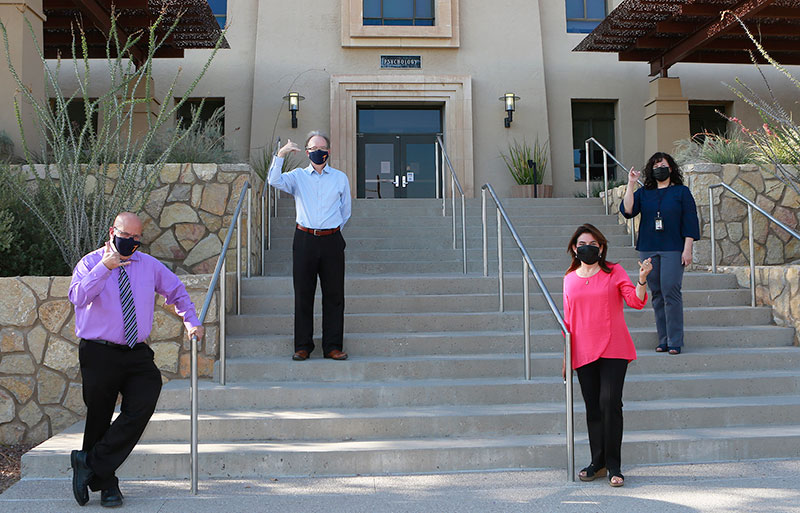
UTEP to Receive $1.35M NIH Grant to Aid Latinx Students to Build Paths to Science Careers
Last Updated on October 14, 2020 at 4:00 PM
Originally published October 14, 2020
By UC Staff
UTEP Communications
EL PASO, Texas – The University of Texas at El Paso will receive $1.35 million from the National Institutes of Health (NIH) to help increase interest among Latinx students and English Language Learners (ELLs) in studying science and engineering.

The five-year NIH Science Education Partnership Award program will attempt to attract the attention of high school students in economically disadvantaged communities to be prepared and motivated to pursue undergraduate degrees in engineering as well as biomedical and behavioral sciences.
Osvaldo Morera, Ph.D., professor of psychology at UTEP, is the principal investigator of “Project ACE – Action for Equity: A BUILDing SCHOLARS Pipeline.”
“On behalf of the team, we are excited and humbled to provide this chance to the teachers and students in those communities,” Morera said.
Project ACE will recruit and engage students and teachers from area high schools in Gadsden, Del Valle and Canutillo with multiple tiers of mentors and a research-focused curriculum.
These campuses were selected in part because they have produced among the fewest participants in the University’s BUILDing SCHOLARS program, an NIH-funded research-intensive training opportunity meant to diversify future generations of biomedical investigators.
The research team consists of Morera; Josefina V. “Josie” Tinajero, Ed.D., professor of teacher education; and Thomas Boland, Ph.D., professor of biomedical engineering.
“We think we can develop a culture of high academic achievement among students, and better prepare them to pursue degrees in biomedical, behavioral and clinical research fields,” Morera said. “Students at these high schools are just as talented and deserving of opportunities like BUILD, and we want to work with these schools to help these students.”
Morera also stressed that this project will be done in collaboration with science teachers and administrators at the three high schools. Each professor has a backstory of overcoming adversity and hopes to provide research participants with the same type of opportunity they received through higher education.
A 2013 report by the U.S. Census Bureau, “Disparities in STEM Employment by Sex, Race, and Hispanic Origin,” is among the recent research papers that has noted a shortage of talented and innovative candidates for the U.S. science, technology, engineering and mathematics (STEM) workforce to include research and development. The Census report documents how Blacks and Latinx populations have consistently been underrepresented in STEM employment.
The program will offer students workshops that promote careers in the biomedical fields and access to tutors for 12 weeks per year. It also will use grant money to create one state-of-the-art biomedical research lab at each participating high school. The program also will help restock these labs. Select students will participate in research at UTEP in the latter stages of the grant.
Morera said he expected Project ACE to influence almost 300 students at the schools where almost 100% of the student population is Latinx, 80% to 100% are eligible for reduced meal plans, and about 20% are English Language Learners.
Collaborations such as this one with UTEP is one of the strategies that Hector Giron, principal of Gadsden High School in Anthony, New Mexico, has implemented to create opportunities for his students. The native of Juárez, Mexico, said these partnerships with academic institutions and external organizations create pathways to higher education and successful futures.
“This NIH grant will provide our students with an opportunity in the biomedical engineering field where Hispanics are underrepresented,” said Giron, a first-generation college student who is completing his doctoral dissertation in educational leadership and foundations at UTEP.
